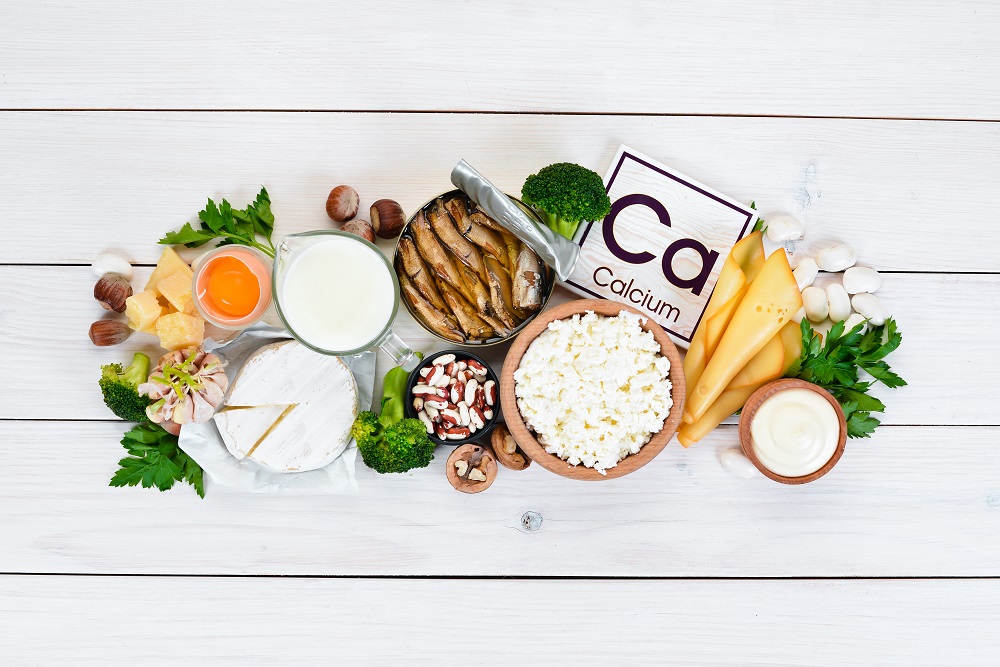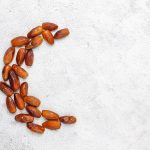Are calcium and potassium the overlooked powerhouses that may help to prevent kidney stone formation? If you’ve ever had a kidney stone, you have a 50% chance of having another one within five years or less. This excruciating experience isn’t one that most people ever want to have again. Having newly published information about calcium and potassium in your back pocket can help.

Many people incorrectly believe that they have to avoid calcium to prevent kidney stones due to confusion over the calcium-stone link. The confusion is usually caused by the fact that the most common type of kidney stone is called a calcium oxalate stone. However, “calcium kidney stones” are actually triggered when too much oxalate is present in the urine. Oxalate is a molecule that is naturally abundant in many foods such as rhubarb, spinach, red beets, buckwheat, rice bran, nuts, tofu, dates, iced tea and many other foods.
Take a look at some information showing that calcium-rich and potassium-rich diets may help to prevent recurrent kidney stones.
Diets Higher in Calcium and Potassium May Protect Against Recurring Kidney Stones
Researchers at Mayo Clinic published a study in 2022 showing that enriching diets with high-calcium and high-potassium foods may prevent recurrent kidney stones. In order to measure the impact of diet on kidney stones, the researchers compared a group of 411 first-time stone sufferers to a control group of 384 people. Researchers then followed up with first-time sufferers to discover that lower levels of reported dietary calcium and potassium predicted higher rates of stone recurrence.
A Diet High in Potassium and Calcium May Be More Important Than Fluid Intake
Anyone struggling with kidney stones has probably received advice to drink more water. Dehydration is a big risk factor for kidney stones. In fact, taking in less than 3,400 milliliters of fluids per day is associated with higher rates of first-time stone formation. However, Mayo Clinic researchers found that low dietary calcium and potassium intake was a more important predictor than fluid intake of recurrent stone formation.
How Much Calcium Should People Take to Prevent Kidney Stones?
According to the Mayo Clinic 2022 study, a daily intake of 1,200 milligrams of calcium can be beneficial for preventing both first-time and recurrent kidney stones. That suggestion is pretty consistent with the daily value of 1,300 milligrams for adults and children age 4 years and older recommended by the Food and Nutrition Board (FNB) at the National Academies of Sciences, Engineering, and Medicine. Most people can hit the daily recommendation with four servings of dairy per day. Non-dairy foods that are high in calcium include sardines, lentils, figs, and leafy greens. A real key however is to try to consume the calcium at the same time one is consuming any oxalate containing foods as then the oxalates are more likely to bind with the calcium in the stomach and intestines and be passed out of the body in a bowl movement rather than be absorbed into the kidneys to form calcium oxalate crystals.
How Much Potassium Should People Take to Prevent Kidney Stones?
The researchers behind the study didn’t include a daily recommended value for potassium intake when developing dietary habits to prevent kidney stones. However, the U.S. Food and Drug Administration’s recommended daily value for potassium of 4,700 milligrams for adults and children age 4 years and older is likely to be adequate. Eating bananas, apricots, oranges, grapefruits, cantaloupes, honeydew melons, and other fruits that are high in potassium makes it easy to hit the target. In addition, peas, cucumbers, zucchini, and mushrooms are some of the high-potassium vegetables that can also get you to your daily target.
Fruits and Vegetables to Avoid for Kidney Stones
While there’s no magic diet for preventing kidney stones, avoiding foods that are high in oxalates and thought to help facilitate stone formation can be crucial for maintaining a stone-free streak. So-called calcium kidney stones are actually calcium oxalate stones that are caused by excess oxalate. Risks for developing stones can be reduced by avoiding or limiting intake of a list of oxalate-rich foods that includes chocolates, sweet potatoes, Swiss chard, rhubarb, spinach, kidney beans, peanuts and other nuts, beets, raspberries, kiwis, and purple grapes.

The Kidney Stone Diet Chart – Foods to Eat and Foods to Avoid
When it comes to treating kidney stones, how we live and what we eat can make a significant difference. Read this blog to know the ways to manage kidney stones.
